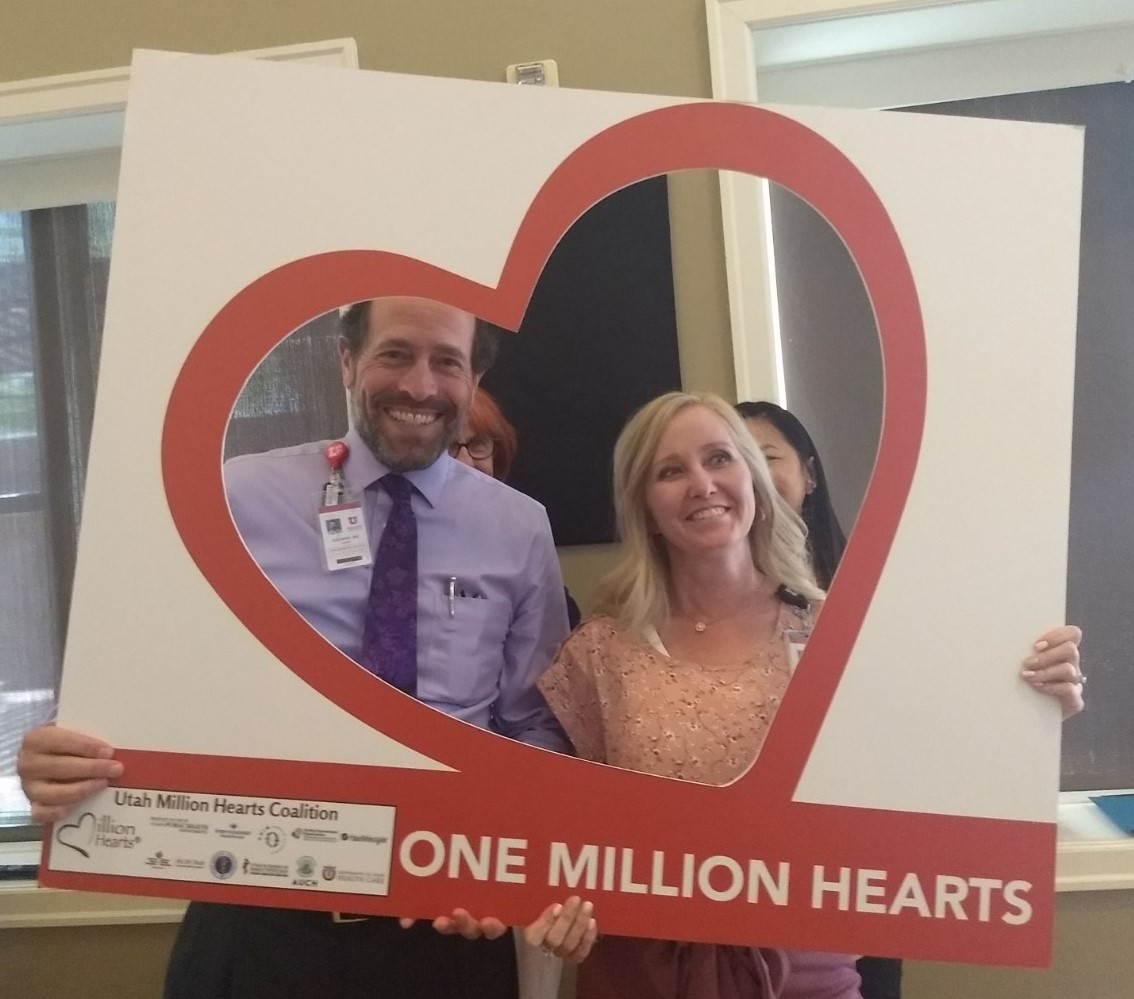 The Utah Department of Health recognized U of U Health's community clinics earlier this month for their efforts to treat & care for patients with high blood pressure.
The Utah Department of Health recognized U of U Health's community clinics earlier this month for their efforts to treat & care for patients with high blood pressure.
The Million Hearts Award for Excellence in Blood Pressure Control was awarded to all Community Physician Group and Family & Preventive Medicine community clinics. U of U clinics accounted for more than 10 percent of the 91 clinics that were recognized across the state.
"To be recognized as 11 of the 91 clinics in Utah that are making a difference in blood pressure control is an honor," said Emily Carlson, quality improvement specialist. "These clinics understand that it takes effort from all members of the care team--providers, medical assistants, nurses, clinical pharmacists, care managers, behavioral health specialists—in partnership with the patient to achieve long-lasting, good health outcomes."
Almost 33 percent of Americans have high blood pressure, and only half have it under control. Kelly Robinson, spokesperson for the Utah Million Hearts Coalition, said the recognition means U of U clinicians are meeting the highest standards for caring for patients with high blood pressure.
"A strong sign that we're making progress in preventing heart attacks and strokes and prioritizing patient care," she said.
The Utah Million Hearts Coalition, a local effort of the national Million Hearts initiative, is made up of public and private health care organizations dedicated to preventing heart attacks.
Eligible clinics shared verifiable high blood pressure control data with the Utah Million Hearts Coalition and highlighted successful strategies or best practices they adopted, such as the use of health information technology or team-based care, including:
- Making blood pressure measurement accuracy a priority
- Using evidence-based guidelines and protocols for high blood pressure diagnosis
- Continually training staff on correct measurement protocols
- Using team-based care models to improve patient engagement
- Implementing consistent, strategic use of electronic health records that include patient reminders and visit summaries
- Staying engaged with patients by offering support and education tools